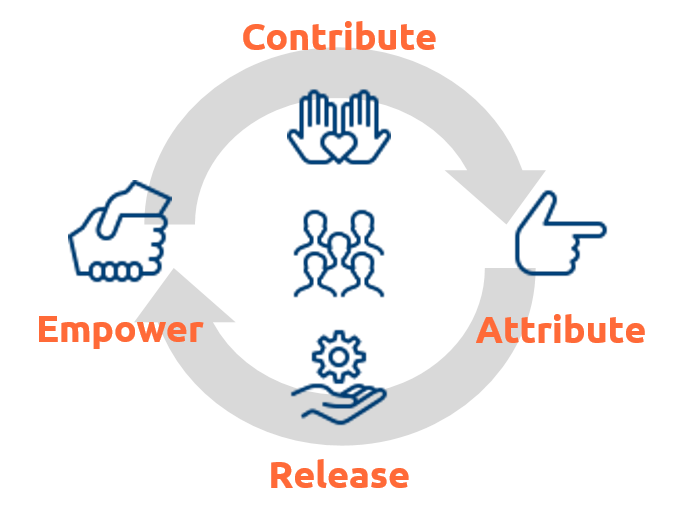OER Stewards
As open educational resource (OER) movement begins to make significant inroads into post-secondary education in Ontario, Ontario Tech University is poised to make a difference in democratizing access to higher education. With instructors from a variety of Faculties acting as early adopters of OER, to support many support departments across campus, consideration not needs to be given to the development of a sustainable and scalable OER strategy for Ontario Tech. This has been the subject of much debate as OER have increased in popularity.
Framework
A framework has been developed to help articulate the shared values and collective vision for OER advocacy on campuses. Because of its ability to link a variety of stakeholders in traditional/formal and non-traditional/informal settings, the framework provides the flexibility for those who are new to OER along with those who are early adopters.
The CARE Framework
The CARE Framework as proposed by Petrides, Levin, and Watson (2018), suggests a four-pronged series of practices that can inform strategies and tactics for OER adoption over time:
- Contribute: OER stewards actively contribute to efforts, whether financially or via in-kind contributions, to advance the awareness, improvement, and distribution of OER;
- Attribute: OER stewards practice conspicuous attribution, ensuring that all who create or remix OER are properly and clearly credited for their contributions;
- Release: OER stewards ensure OER can be released and used beyond the course and platform in which it was created or delivered;
- Empower: OER stewards are inclusive and strive to meet the diverse needs of all learners, including by supporting the participation of new and non-traditional voices in OER creation and adoption.

Attribution: Adapted from Toward a Sustainable OER Ecosystem: The Case for OER Stewardship, by Petrides, Levin, and Watson (2018), licensed under a Creative Commons Attribution-ShareAlike 4.0 International License.
OER Stewards Membership
The CARE Stewardship Framework encourages participation from OER advocates with the flexibility to participate in ways that are meaningful to the stewards themselves and to the campus community. The OER Stewards at Ontario Tech would serve as a group to provide awareness, education, support, knowledge-sharing, and advocacy for OER, rather than centrally administrating all OER efforts. While those with an interest in participating in these principles are encouraged to join, ideal representation will also include:
- Teaching and Learning Centre
- Library
- Faculties
- Centre for Institutional Quality Enhancement
- Student Union
- Learning Innovation
OER Stewards would meet bi-monthly to keep the group informed of their individual activities and report on progress on self-selected objectives. Opportunities would exist to participate in activities that align with individual goals and at a level that each individual feels comfortable in order to promote longevity among members.
Goals
- Follow the CARE Framework to support OER initiatives
- Promote institutional awareness of OER
- Coordination of communication regarding OER initiatives, including OER creation, adaptation, and adoption
- Coordination and/or execution of educational and support opportunities that further community members’ comfort and familiarity with OER
- Coordination and/or execution of educational and support opportunities to support creation or adoption of OER
- Support the university’s commitment to OER
Join the OER Stewards
The OER Stewards welcome students, staff, and faculty at Ontario Tech who have an interest in Open Education to join the OER Stewards. Express your interest by telling us a bit about yourself with the form here.
2019-2020 OER Stewards at Ontario Tech
- Nik Vantfoort
- Tess Pierce
- Michael Guy
- Nelson Lafreniere
- Fiona McArthur
- Emily Tufts
- Elita Partosoedarso
- Jeremy Bradbury
- Bridgette Atkins
- Theresa Miedema
- Jeanette Oliveira
- Deborah Treftlin
- Joseph MacMillan
- Kate Gibbings
- Sharon Lauricella
- Robert Bailey
- Sarah Stokes
Meeting Information and Resources
July 26, 2019 at 9 a.m. - Meeting Slides
